Receive Our Newsletter
For news of readings, events and new titles.
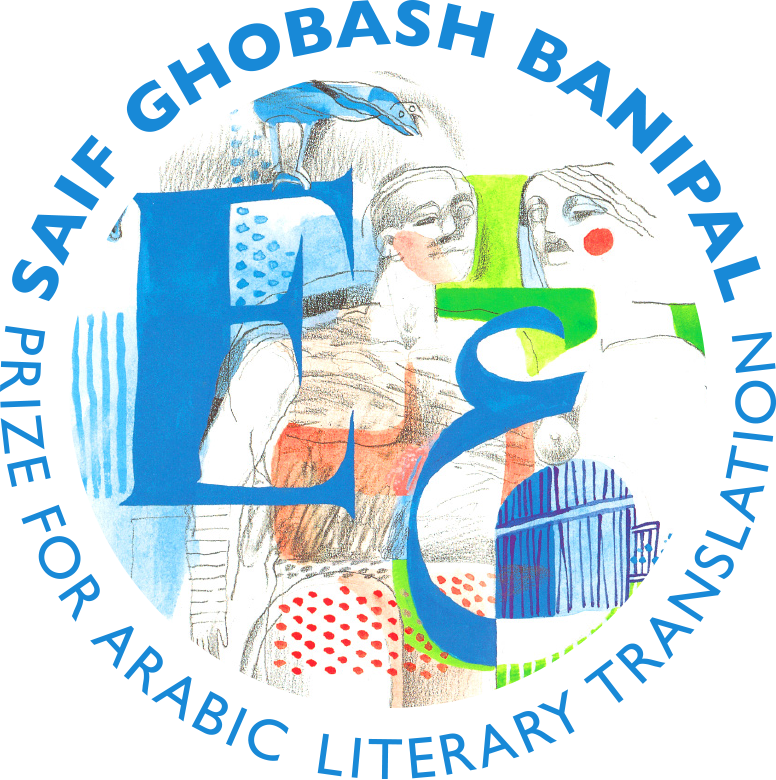
Announcing KATHARINE HALLS the winner
for her translation of Rotten Evidence by Ahmed Naji
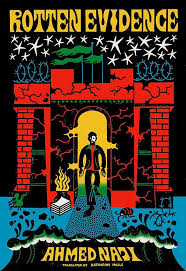

“A brilliant feat! A masterclass!
Naji’s humanity shines forth!”
The 2024 Saif Ghobash Banipal Prize for Arabic Literary Translation is awarded to Katharine Halls for her translation of Rotten Evidence by Ahmed Naji, published by McSweeney’s. Following the shortlist of six works that was announced on 2 December 2024, the judges have named Katharine Halls as the winner of the 2024 prize, to be awarded by the Society of Authors on 12 February 2025.
The judging panel of four comprised Raphael Cohen (Chair), freelance translator in the fields of literature (fiction and prose), politics and development, Michael Caines, editor at the Times Literary Supplement and co-founder of the Brixton Review of Books, Laura Watkinson, award-winning literary translator, mainly from Dutch into English, but also from German, Italian and Frisian, and Nariman Youssef, literary translator and translation consultant. For more information about the judges click here.
Selecting this year’s winner was not a straightforward task, given that three books were in close contention: Bothayna Al-Essa’s Lost in Mecca, translated by Nada Faris; Iman Mersal’s Traces of Enayat, translated by Robin Moger; and Ahmed Naji’s Rotten Evidence, translated by Katharine Halls. While commending the narrative verve of Lost in Mecca and its powerful handling of many taboo subjects, the judges agreed that the two finest works this year were both works of reportage and (auto)biography.
Traces of Enayat and Rotten Evidence portray Egyptian society and the consequences of writing; in the former case during the first decade of the Nasserite dispensation and in the latter during the fallout from the events of 2011. Both works have been admirably translated: fluent, creative and literary. In the end, however, we considered that Katharine Halls’s translation of Rotten Evidence deserved the prize. Halls not only gives a masterclass on the lexical and phrasal level; she also takes a scalpel to the structure of the original Arabic to produce a text that is more accessible to the English reader and less episodic than the original.
Judge Michael Caines commented, “Scathing, humorous, compelling: Rotten Evidence excels for its indictment of a broken political system but also for its visceral account of the author’s interior life in prison. Katharine Halls’s translation does full justice to Ahmed Naji’s depiction of a world that few outsiders will know or understand.”
Judge Laura Watkinson stated, “I particularly admire how Katharine Halls weaves elements of the Arabic into the text in a way that allows non-Arabic speakers to appreciate puns and to get a feel for prison slang. The style is fluent, colloquial and entertaining. Halls expertly renders the wide variety of registers in this book, from convoluted legal terminology to discussions about forbidden names for genitalia. A brilliant feat!” With reference to Traces of Enayat, Watkinson added that in any other year, it could have been the winner.
Judge Nariman Youssef added, “Halls seamlessly navigates culturally specific idioms and prison slang. Her bold choice to offer transliterations or literal translations of terms or phrases that might seem, at first glance, untranslatable – ‘truth is a mango’, ‘shambara’ – is justified time and again by the deft elucidations that she weaves into the text with inimitable simplicity.”
In Rotten Evidence Ahmed Naji writes, “James Joyce, who swore to express himself with the greatest degree of freedom possible – and never to serve home, fatherland, or church – said a writer had three weapons: silence, exile, and cunning. Well, Joyce, they put me in prison, and all I had left was laughter and rage.” Both laughter and rage are present, but Naji’s humanity shines forth.
“It is a wonderful honour to have been awarded the Saif Ghobash Banipal Prize for my translation of Ahmed Naji’s prison memoir Rotten Evidence, though a strange and difficult time to imagine celebrating anything. This past month has brought us joy and relief at the sight of former detainees walking free from prisons across Syria, where they have spent years in conditions of indescribable cruelty which so many others did not survive. It has also brought grief and despair, as our friend and comrade Alaa Abd el-Fattah, to whom a chapter of Rotten Evidence is dedicated, continues to languish behind bars in Egypt after more than a decade, while his mother Laila remains on hunger strike. It is impossible to forget, in these times of resurgent fascism, that writing about and against prison will always a revolutionary act. Ahmed Naji is a particularly brave, witty, and uncompromising writer, and I hope this accolade will encourage many more readers to pick up his excellent, indeed revolutionary, book.”

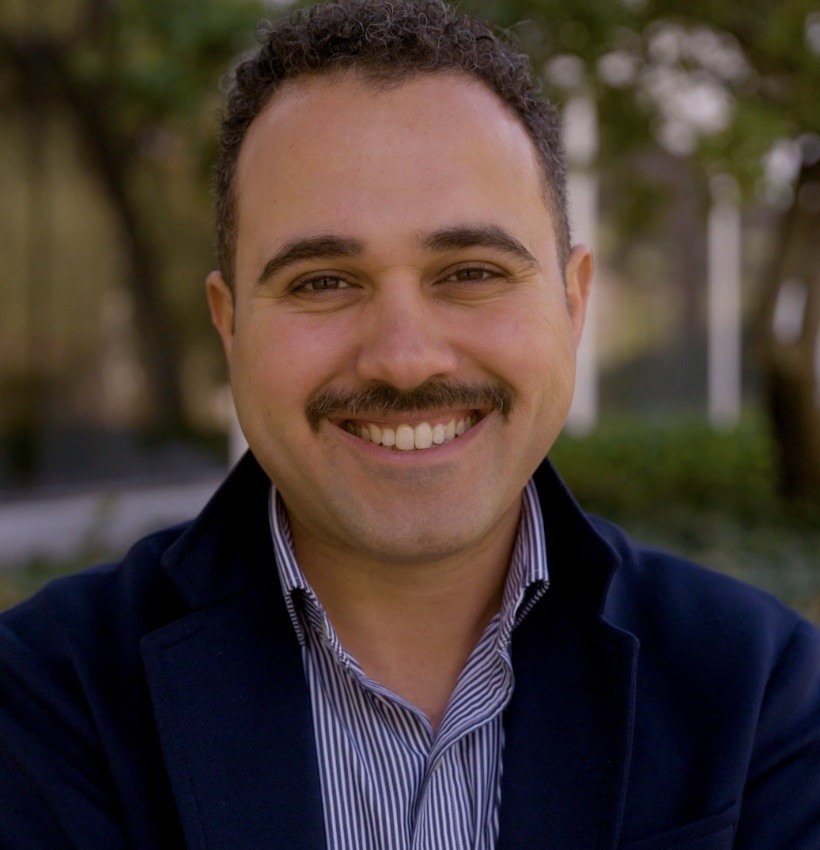 Ahmed Naji, born in Menyet Sandoub, Egypt in 1985, is a writer, journalist, documentary filmmaker and “criminal”. His memoir Rotten Evidence: Reading and Writing in an Egyptian Prison was a finalist in the 2023 National Book Critics Circle Award in the US. His novel Using Life (2014), whose English translation by Ben Koerber was shortlisted for the 2018 Saif Ghobash Banipal Prize, made him the first writer in Egyptian history to be imprisoned for offending public morality. He is the author of three other novels: Rogers (2007), And Tigers to my Room (2020) and Happy Endings (2023). Naji has won several prizes, including a Dubai Press Club Arab Journalism Award and a PEN/Barbey Freedom to Write Award. He was a City of Asylum Fellow at the Beverley Rogers, Carol C. Harter Black Mountain Institute in Las Vegas, where he currently lives with his family.
Ahmed Naji, born in Menyet Sandoub, Egypt in 1985, is a writer, journalist, documentary filmmaker and “criminal”. His memoir Rotten Evidence: Reading and Writing in an Egyptian Prison was a finalist in the 2023 National Book Critics Circle Award in the US. His novel Using Life (2014), whose English translation by Ben Koerber was shortlisted for the 2018 Saif Ghobash Banipal Prize, made him the first writer in Egyptian history to be imprisoned for offending public morality. He is the author of three other novels: Rogers (2007), And Tigers to my Room (2020) and Happy Endings (2023). Naji has won several prizes, including a Dubai Press Club Arab Journalism Award and a PEN/Barbey Freedom to Write Award. He was a City of Asylum Fellow at the Beverley Rogers, Carol C. Harter Black Mountain Institute in Las Vegas, where he currently lives with his family.
 Rotten Evidence
Rotten Evidence
by Ahmed Naji (Egypt)
Published by McSweeney’s, 17 October 2023
https://store.mcsweeneys.net/products/rotten-evidence-reading-and-writing-in-an-egyptian-prison/
Pbk ISBN: 9781952119835. £15.98
E-book ISBN: 9781952119842 £12.99
In February 2016, Ahmed Naji was sentenced to two years in prison for “violating public decency”, after an excerpt of his novel Using Life reportedly caused a reader to experience heart palpitations. Naji ultimately served ten months of that sentence, in a group cellblock in Cairo’s Tora Prison.
Rotten Evidence is a chronicle of those months. Through Naji’s writing, the world of Egyptian prison comes into vivid focus, with its cigarette-based economy, homemade chess sets, and well-groomed fixers. Naji’s storytelling is lively and uncompromising, filled with rare insights into both the mundane and grand questions he confronts.
How does one secure a steady supply of fresh vegetables without refrigeration? How does one write and revise a novel in a single notebook? Fight boredom? Build a clothes hanger? Negotiate with the chief of intelligence? And, most crucially, how does one make sense of a senseless oppression: finding oneself in prison for the act of writing fiction? Genuine and defiant, this book stands as a testament to the power of the creative mind, in the face of authoritarian censorship.
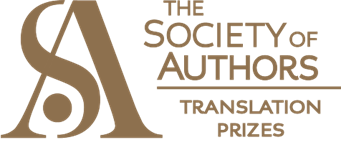 The Translation Prizes Award Ceremony, hosted by The Society of Authors, will take place on 12 February 2025 at the British Library, and will award eight translation prizes: the John Florio Prize (Italian biennial), the Premio Valle Inclán (Spanish), the Saif Ghobash Banipal Prize (Arabic), the Great Britain Sasakawa Foundation Translation Prize (Japanese), the Schlegel-Tieck Prize (German), the Scott Moncrieff Prize (French), the TA First Translation Prize (debut translation from any language into English) and the Vondel Translation Prize (Dutch triennial). Click for all information.
The Translation Prizes Award Ceremony, hosted by The Society of Authors, will take place on 12 February 2025 at the British Library, and will award eight translation prizes: the John Florio Prize (Italian biennial), the Premio Valle Inclán (Spanish), the Saif Ghobash Banipal Prize (Arabic), the Great Britain Sasakawa Foundation Translation Prize (Japanese), the Schlegel-Tieck Prize (German), the Scott Moncrieff Prize (French), the TA First Translation Prize (debut translation from any language into English) and the Vondel Translation Prize (Dutch triennial). Click for all information.
The Annual Lecture and the Winner of the 2024 Prize
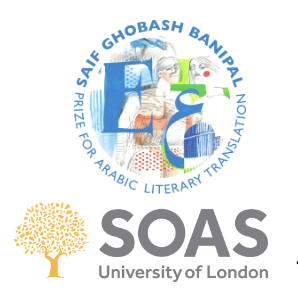 On Thursday 13 February 2025, from 6.00pm GMT, at the SOAS Brunei Gallery Lecture Theatre, the Banipal Trust for Arab Literature will co-host, with the SOAS School of Languages, Cultures and Linguistics, the SOAS Centre for Translation Studies and the SOAS Centre for Cultural, Literary and Postcolonial Studies, A Celebration of Arabic Literary Translation at which Prize-winner Katharine Halls will be in conversation with chair of judges Raphael Cohen, and professor and literary translator Margaret Litvin will give the Annual Lecture on the subject: Translating Beauty and Revolt in Arabic Literature Today. The event will be in-person and online, followed by a Q&A and a reception.
On Thursday 13 February 2025, from 6.00pm GMT, at the SOAS Brunei Gallery Lecture Theatre, the Banipal Trust for Arab Literature will co-host, with the SOAS School of Languages, Cultures and Linguistics, the SOAS Centre for Translation Studies and the SOAS Centre for Cultural, Literary and Postcolonial Studies, A Celebration of Arabic Literary Translation at which Prize-winner Katharine Halls will be in conversation with chair of judges Raphael Cohen, and professor and literary translator Margaret Litvin will give the Annual Lecture on the subject: Translating Beauty and Revolt in Arabic Literature Today. The event will be in-person and online, followed by a Q&A and a reception.
All welcome to this free event
Links to register for either in-person or online attendance will be available shortly at https://www.banipaltrust.org.uk/lecture/lecture2024.cfm
and https://www.soas.ac.uk/about/events
_______________________________